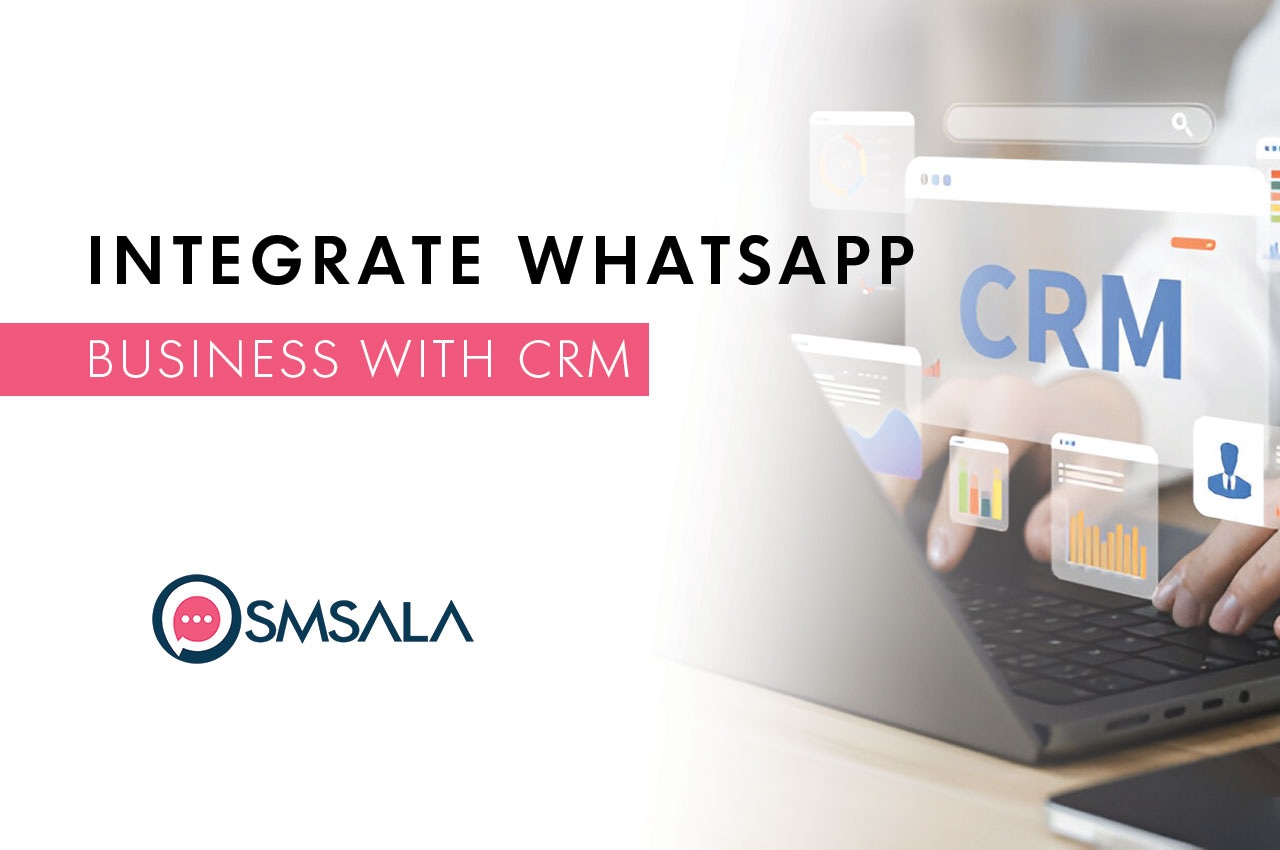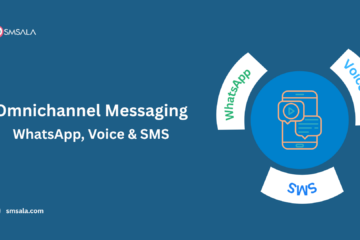In today’s highly connected world, customer engagement is no longer just an added bonus—it’s an absolute necessity for businesses aiming to thrive. Modern consumers expect instant responses and personalized communication, and businesses that fail to deliver on these expectations risk falling behind. To meet these demands, businesses are turning to advanced tools that can streamline and enhance their customer relationship processes. One such powerful tool is WhatsApp Business, a platform with over 2 billion active users worldwide. With its massive global reach, WhatsApp Business allows companies to engage with their customers in real time, creating meaningful and personalized interactions.
But having access to WhatsApp Business alone is not enough. To unlock its full potential and truly maximize your customer engagement, it’s essential to integrate WhatsApp Business with your CRM (Customer Relationship Management) system. A CRM system helps businesses manage and analyze customer interactions and data throughout the customer lifecycle, improving relationships and driving sales growth. When WhatsApp and CRM are combined, they provide a seamless communication experience that not only enhances customer satisfaction but also optimizes workflow and productivity.
In this comprehensive guide, we’ll walk you through the steps to integrate WhatsApp Business with your CRM, explore the numerous benefits of this integration, and demonstrate how it can revolutionize your customer relationship strategy.
What is WhatsApp Business and Why Should You Use It?
Before diving into the integration process, let’s start with a basic understanding of WhatsApp Business and why it has become a crucial tool for businesses across industries.
What is WhatsApp Business?
WhatsApp Business is a free-to-download app available for Android and iPhone, designed specifically for small and medium-sized businesses. It allows you to interact with your customers directly via WhatsApp, making it easy to automate, sort, and respond to messages efficiently.
Some of the core features of WhatsApp Business include:
- Business Profile: Add important business information like your address, website, and email.
- Quick Replies: Save and reuse frequently sent messages to answer common questions.
- Automated Messages: Set up greetings or away messages when customers first contact you or when you’re unavailable.
- Labels: Organize chats and contacts to keep track of ongoing conversations with your customers.
Why Should Businesses Use WhatsApp Business?
The main reason to use WhatsApp Business is its direct line to your customers. With 98% open rates, messages sent via WhatsApp are far more likely to be seen than those sent via email or other platforms. Additionally, the conversational nature of WhatsApp allows businesses to provide a more personalized and interactive customer experience.
What is CRM and How Does It Enhance Customer Relations?
While WhatsApp Business gives you the ability to connect with customers, CRM takes it a step further by enabling you to track, manage, and enhance those relationships over time.
What is CRM?
A CRM system is a tool that helps businesses manage interactions with current and potential customers. It allows businesses to store customer data, track customer interactions, automate workflows, and streamline communications. Popular CRM platforms like Salesforce, HubSpot, and Zoho enable businesses to monitor sales pipelines, segment audiences, and personalize communications.
How CRM Improves Customer Relationships
By integrating WhatsApp with your CRM, you can:
- Store and organize customer interactions for easy reference.
- Automate follow-up processes to ensure no lead or query falls through the cracks.
- Segment customers based on their behaviors and preferences, allowing for more personalized and effective communication.
- Track performance metrics to continually improve customer engagement strategies.
Why You Should Integrate WhatsApp Business with Your CRM
Now that we’ve established the basics of both WhatsApp Business and CRM, let’s dive into why integrating the two systems is so beneficial.
1. Centralized Customer Communication
Integrating WhatsApp Business with your CRM allows you to manage all customer interactions from one platform. Instead of toggling between different tools, you can access WhatsApp messages directly within your CRM. This integration streamlines communication and saves time.
2. Enhanced Data Collection and Insights
When integrated with your CRM, every WhatsApp interaction becomes a data point. You can track when customers open messages, how they respond, and their overall engagement. This data can then be used to refine your marketing and customer service strategies. For example, you could set up automated workflows based on customer behavior, like sending a follow-up message after a customer interacts with a specific product link.
3. Automated Messaging and Personalization
One of the key advantages of integrating WhatsApp with CRM is the ability to automate responses. Using CRM workflows, you can send personalized messages at the right time. For instance, when a lead fills out a form on your website, your CRM can automatically trigger a welcome message on WhatsApp, ensuring instant engagement.
4. Improved Sales and Marketing Efficiency
By integrating WhatsApp into your CRM system, your sales and marketing teams can manage leads, track sales conversations, and nurture prospects through the pipeline without leaving the CRM. This integration allows for a seamless flow of information between your customer interactions on WhatsApp and your internal sales process, increasing both efficiency and accuracy.
Step-by-Step Guide: How to Integrate WhatsApp Business with Your CRM
Integrating WhatsApp with your CRM might sound complex, but with the right tools and guidance, it’s a straightforward process. Here’s a step-by-step guide to help you get started:
1. Choose the Right CRM for WhatsApp Integration
Not all CRMs support WhatsApp integration, so it’s crucial to choose a CRM that works well with WhatsApp Business. Some popular CRMs with built-in integration or easy third-party connections include:
- Salesforce
- HubSpot
- Zoho CRM
2. Get Access to WhatsApp Business API
WhatsApp Business integration with a CRM requires access to the WhatsApp Business API. Unlike the free WhatsApp Business app, the API version is designed for larger businesses that need to manage multiple conversations and automate messaging at scale.
You’ll need to work with an official WhatsApp Business API provider, such as Twilio or MessageBird, to obtain access. These providers offer tools and support for integrating WhatsApp into your existing CRM.
3. Integrate WhatsApp API with Your CRM
Once you have access to the API, the next step is to integrate it with your CRM. This usually involves:
- Connecting your WhatsApp Business account with the CRM via an API.
- Configuring API settings to manage and route messages.
- Testing the integration to ensure that messages flow between WhatsApp and the CRM seamlessly.
4. Set Up WhatsApp Messaging Templates
WhatsApp has strict rules about the types of messages businesses can send. You’ll need to set up pre-approved message templates for specific interactions, such as order confirmations, appointment reminders, or customer service responses. Make sure these templates comply with WhatsApp’s guidelines to avoid any disruptions in communication.
5. Configure Automation and Notifications
Now that the integration is in place, you can set up automation workflows. For example:
- Send automatic WhatsApp messages based on customer actions (e.g., when a customer makes a purchase or fills out a form).
- Set up notifications for your team when a customer sends a WhatsApp message, ensuring prompt follow-up.
- Automate customer feedback requests or surveys via WhatsApp.
Best Practices for Managing WhatsApp and CRM Integration
To ensure you’re getting the most out of your WhatsApp-CRM integration, it’s important to follow some best practices:
1. Segment Your Customers for Personalized Communication
Leverage your CRM’s segmentation tools to categorize customers based on their behavior and preferences. By grouping customers into different segments, you can send tailored WhatsApp messages that are more likely to resonate with each group. For example, you can send exclusive offers to loyal customers while offering discounts to first-time buyers.
2. Regularly Update Customer Data
Ensure that your CRM data is always up-to-date. This will help you deliver accurate and timely messages via WhatsApp, ensuring you’re providing a seamless experience across both platforms.
3. Monitor Engagement Metrics
Track key metrics, such as message open rates, response times, and customer satisfaction, to optimize your WhatsApp communication. Most CRMs allow you to generate reports on these interactions, helping you fine-tune your strategies.
4. Ensure Compliance with Data Privacy Regulations
Make sure your integration complies with data protection laws like GDPR and CCPA. This includes obtaining customer consent before messaging them and ensuring their data is stored securely within your CRM.
Common Challenges in Integrating WhatsApp Business with CRM
While the integration offers many benefits, some challenges can arise. Here’s how to address them:
1. Technical Difficulties with API Setup
Setting up the WhatsApp Business API can be tricky for those without a technical background. To solve this, work with your CRM provider or a third-party service to ensure the integration is done correctly.
2. Message Limits and Compliance
WhatsApp imposes restrictions on the type and volume of messages businesses can send. Avoid getting flagged by adhering to WhatsApp’s messaging rules and using pre-approved message templates.
3. Syncing Data Between WhatsApp and CRM
Sometimes data syncing between WhatsApp and your CRM can be delayed or incomplete. Regularly monitor your system’s performance and set up alerts to address any issues as soon as they arise.
Use Cases: How Different Industries Benefit from WhatsApp-CRM Integration
Different industries can leverage WhatsApp-CRM integration to streamline customer interactions and improve operational efficiency. Here are some real-world examples:
1. E-commerce
E-commerce businesses can use WhatsApp to send order updates, offer customer support, and automate cart abandonment reminders—all directly through their CRM system.
2. Healthcare
Healthcare providers can schedule appointments, send reminders, and provide real-time responses to patient inquiries, improving both patient experience and operational efficiency.
3. Real Estate
Real estate agents can use WhatsApp to engage with leads, share property updates, and schedule viewings, all while tracking these interactions through their CRM.
4. Education
Educational institutions can send course updates, admission reminders, and personalized follow-ups to prospective students via WhatsApp, helping them manage a large volume of inquiries effectively.
FAQs About WhatsApp Business and CRM Integration
Here are some common questions and answers about integrating WhatsApp Business with CRM:
1. Do I need WhatsApp Business API to integrate with CRM?
Yes, the API is required for large-scale messaging and CRM integration. The regular WhatsApp Business app does not support CRM connectivity.
2. What are the costs of integrating WhatsApp with CRM?
Costs vary depending on the API provider, CRM platform, and message volume. Typically, providers charge per message or offer subscription packages.
3. Is WhatsApp-CRM integration secure?
Yes, most reputable CRM platforms and WhatsApp API providers offer end-to-end encryption and secure data storage.
4. Can I automate WhatsApp messages from my CRM?
Yes, you can set up automation workflows within your CRM to trigger WhatsApp messages based on customer actions or behavior.
5. What CRM platforms support WhatsApp Business integration?
Popular platforms like Salesforce, HubSpot, and Zoho support WhatsApp Business integration, often through third-party API providers.
Conclusion:
Integrating WhatsApp Business with your CRM can significantly enhance your business’s ability to manage customer interactions, automate workflows, and improve overall communication. By centralizing your messaging and customer data, you can deliver more personalized and efficient customer service, helping your business grow and succeed.
Now is the time to explore WhatsApp Business API providers and start integrating with your CRM. With the right tools and strategy, you can transform your customer relationship management and stay ahead of the competition.



